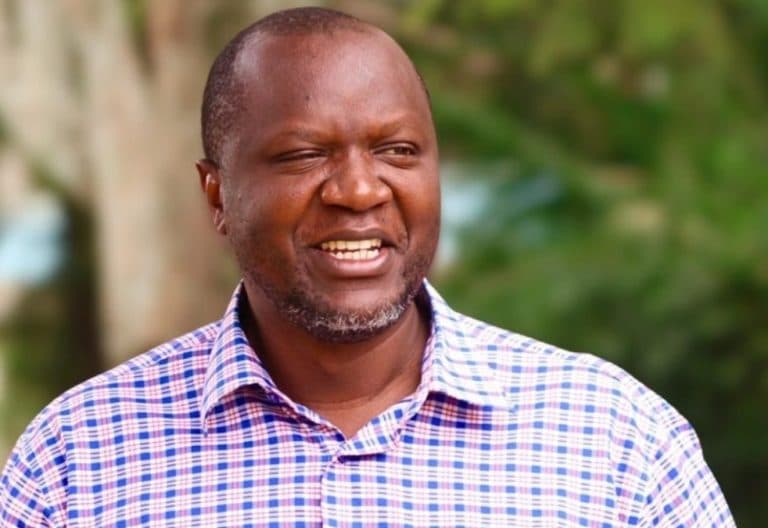We're loading the full news article for you. This includes the article content, images, author information, and related articles.
Safina Party's deputy leader, Willis Otieno, advocates for a radical economic overhaul, including debt repudiation and tax cuts, as the remedy for Kenya's persistent youth unemployment and economic anxieties.

In a political landscape often dominated by personality-driven contests, Safina Party's deputy leader, Willis Otieno, is forcefully redirecting the national conversation towards economic fundamentals. The prominent lawyer argues that Kenya's focus on political competition is misplaced, advocating instead for a radical economic restructuring to address the nation's deep-seated issues, most notably youth unemployment. Otieno's recent statements criticize what he terms the government's reliance on "outdated economic models," which he claims have failed to create meaningful opportunities for a burgeoning young population.
Kenya's economic challenges are stark. According to the World Bank, the youth unemployment rate for ages 15-24 stood at 16.7% in 2022, a figure that underscores the scale of the crisis. Otieno contends that years of poor economic planning and misallocation of resources have stifled industries like technology, renewable energy, and sustainable agriculture, which hold the potential to absorb young talent. His critique comes as the current administration rolls out initiatives like the National Youth Opportunities Towards Advancement (NYOTA) project, a Ksh5 billion program in partnership with the World Bank aimed at enhancing youth employability. However, this program has also faced criticism for its slow implementation and for potentially excluding millions who defaulted on previous government loan schemes like the Hustler Fund.
Compounding the unemployment issue is Kenya's significant public debt. As of June 2024, the total public and publicly guaranteed debt reached Ksh 10.6 trillion, representing 65.7% of GDP. The 2025 Budget Policy Statement noted an elevated risk of debt distress. Otieno has been a vocal critic of this debt burden, labeling the forced repayment of certain loans as "economic genocide." He argues that funds diverted to service what he calls "odious debt"—loans he claims were acquired without transparency or clear public benefit—are stolen from essential services like education and healthcare.
In response to these challenges, the Safina Party, under its new leader Jimmy Wanjigi and with Otieno as his deputy, has proposed a five-point plan dubbed the "FIST Agenda." Unveiled at their National Delegates Conference on September 18, 2025, this agenda represents a significant departure from conventional economic policy in Kenya. The key pillars of the proposed "Economic Revolution" are:
While Safina's proposals are aimed at addressing genuine public grievances, their implementation would present significant challenges. The call to repudiate sovereign debt, for instance, could have severe repercussions. While the doctrine of "odious debt" exists in international law theory, its practical application is rare and contentious. A unilateral default could damage Kenya's creditworthiness, making future borrowing for essential infrastructure and development projects prohibitively expensive, if not impossible. This could lead to capital flight and a currency crisis, potentially worsening the economic situation for ordinary Kenyans. The International Monetary Fund (IMF) and other development partners have consistently emphasized fiscal consolidation and adherence to debt obligations as key to macroeconomic stability.
Similarly, the proposal to drastically cut consumption tax by replacing the 16% VAT with a 5% sales tax would create a massive revenue shortfall. While Otieno and Wanjigi argue this would be offset by increased consumption, such a dramatic tax cut would likely require deep and immediate cuts to public spending, potentially affecting the very services they aim to make free. Economists have warned that abrupt changes to the VAT system can create significant cash flow problems for businesses and administrative burdens for the revenue authority.
Financing universal healthcare and free secondary education are laudable goals, but they require substantial and sustainable funding streams. Studies on universal healthcare in Kenya highlight the need for innovative financing models and significant increases in government health budgets. A 2017 study published in PubMed Central noted that while a tax-funded system could be more sustainable than a purely insurance-based model for UHC in Kenya, it would still require considerable government subsidies. Safina's agenda does not yet provide a detailed financial model for how these ambitious and costly programs would be funded in the context of a radically reduced tax base and a halt to domestic borrowing.
Otieno's call to shift the national focus from politics to economic empowerment resonates with a population grappling with a high cost of living, even as headline inflation remained steady at 4.6% in October 2025, according to the Central Bank of Kenya. However, the solutions proposed by the Safina Party, while bold, raise fundamental questions about fiscal responsibility and macroeconomic stability. As the political discourse evolves, the pressure will mount on Otieno and his party to provide a more detailed roadmap on how their "Economic Revolution" can be achieved without plunging Kenya into deeper financial uncertainty.
Keep the conversation in one place—threads here stay linked to the story and in the forums.
Sign in to start a discussion
Start a conversation about this story and keep it linked here.
Other hot threads
E-sports and Gaming Community in Kenya
Active 9 months ago
The Role of Technology in Modern Agriculture (AgriTech)
Active 9 months ago
Popular Recreational Activities Across Counties
Active 9 months ago
Investing in Youth Sports Development Programs
Active 9 months ago